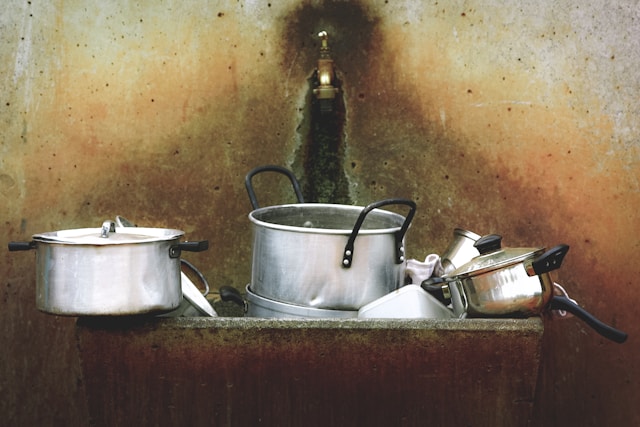
Hard Water Woes: How Water Softeners Can Solve Your Problems
Water softeners reduce the number of dissolved minerals in your home’shome’s water supply, helping to eliminate issues like limescale buildup, soap scum residue, and clogged drains. Long-term cost savings and increased lifespan are achieved by protecting your appliances and pipes from harm. The ion exchange process inside a water softener occurs within a tank filled with tiny resin beads that swap hard water minerals for sodium ions. Continue reading to discover issues that are brought on by hard water and how a water softener can address them:
Limescale Buildup
Many of us are familiar with hard water and the problems that it causes, from the unsightly off-white coating of calcium carbonate that builds up on taps and shower heads to the dreaded limescale that coats kettles, teapots and the inside of boilers and radiators. Limescale buildup is not only unsightly and difficult to remove, but it also restricts water flow and can increase maintenance costs. Even your washing machine and dishwasher’s lifespan may be shortened by it. Water softeners Tampa reduce the concentration of minerals in your supply pipes and prevent them from building up on surfaces.
Soap Residue
Soap residue is a common issue with hard water that can be difficult to wash away. The minerals found in hard water react with soaps, causing them to bind together and create a scaly residue. Some try to combat this issue by using soaps formulated for hard water. These soaps often contain additives like chelating agents that help minimize hard water’s negative effects on soap. Another solution is to use a water softener that removes the hardness minerals through ion exchange. This system replaces the calcium and magnesium ions with sodium ions, allowing soap to lather properly.
Hair Loss
While it’s not technically a direct cause of hair loss, hard water can interfere with your color. The minerals in hard water react with your hair products and prevent them from absorbing. It causes your hair to fade and dull. You’ll know you have hard water when soap doesn’t lather, dishes and glasses have spots, and a residue remains on shower doors. The best way to fix this problem is by purchasing a water softener. Showering in hard water requires more shampoo and soap to get a good lather. It also doesn’t rinse as thoroughly as soft water. It leaves a film of soap on skin and hair, which leads to dry, itchy skin and dull, unmanageable hair.
Discoloration
If your water is yellow or brown, it’s likely due to hard water sediments stirred up by flushing, maintenance, and other activities in the water mains. These deposits may also be causing your plumbing issues, such as clogged pipes. Untreated hard water can cause your clothes to fade, leaving behind unsightly stains. Your skin may feel dry and irritated as well. A water softener removes these minerals from your home’s water through ion exchange. This process causes the resin beads to grab the hardness minerals and release sodium into the water. This amount of sodium is far less than what you consume from eating salty foods.
Scale Buildup
Ion exchange systems enable water softeners to greatly lower the mineral content of household water by substituting sodium ions for the calcium and magnesium ions found in hard water. It minimizes scale buildup, prolongs the lifespan of appliances that consume water and reduces maintenance requirements. The minerals found in hard water create a film on glassware, sinks and shower stalls that is difficult to rinse away. They also leave behind dingy clothes and dull hair and decrease the effectiveness of detergents.
Most importantly, the mineral ions found in hard water cause damaging deposits within pipes and appliances such as coffeemakers, dishwashers, washing machines, boilers and ice makers. These deposits slow down water flow, decreasing efficiency and causing these items to wear out 30% faster than they should.
Dry Skin
If you have recurrent dry skin issues, your hard water quality may be to blame. The minerals that make up hard water prevent soaps from forming an effective lather and can clog pores, causing dry, itchy skin. Over time, this can disrupt the natural oil balance of your skin and exacerbate pre-existing conditions like dermatitis. The best way to combat dry skin is by incorporating a moisturizing lotion into your daily routine. You can also switch to hand soaps that don’t contain harsh chemicals or fragrances. In addition, a water softener for your whole house can greatly reduce dryness caused by hard water.
Hard Water Stains
The last thing anyone wants is unsightly hard water stains. These white, chalky spots are caused when water evaporates from basins like tubs and sinks, leaving behind rings or blotches of minerals such as calcium. These stains aren’t just unsightly and can damage your plumbing and cause costly appliance failure over time. They can make soaps and shampoos less effective by preventing them from lathering.





